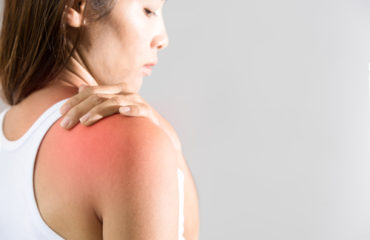 Shoulder instability occurs when an individual’s shoulder muscles, tendons, and ligaments are not able to secure their shoulder joint any longer. When this happens the top of the bone in the upper arm moves in the shoulder socket and may possibly dislocate.
Shoulder instability occurs when an individual’s shoulder muscles, tendons, and ligaments are not able to secure their shoulder joint any longer. When this happens the top of the bone in the upper arm moves in the shoulder socket and may possibly dislocate.
As a consequence, the top of this upper arm bone is pushed out of the shoulder socket and may bring about chronic shoulder pain.
Types of shoulder instability
While there can be many causes, most cases of shoulder instability are reported in athletes. Dislocated shoulders can be a common occurrence among players who engage in overhead sports with repetitive movements such as volleyball, baseball, softball, and swimming.
Any limitation in shoulder function may spell the end of an athlete’s career. The most common types of shoulder injuries observed in athletes can range from dislocation to subluxation and laxity.
- Dislocation results when there is a complete loss of movement with the bone slipping out of the joint
- Subluxation is considered a partial dislocation and may be caused by repetitive trauma
- Laxity is also a partial loss of movement due to loose ligaments
Causes of shoulder instability
The three most common reasons why athletes suffer from this condition can be summarised below:
- Repetitive, overhead movement: An individual may dislocate their shoulder when engaging in an overhead sport. The repetitive movement of throwing, catching or hitting a ball can all cause the shoulder joint muscles to become weak over time. As a result, the surrounding connective tissue starts to expand and causes injury.
- Trauma from contact sports: A number of high impact activities may also cause the shoulder to injure and dislocate. The injury could be a possible result of contact and collision in sports like hockey and football.
- Genetic factors: Some people have a genetic predisposition to lose joints or laxity throughout their body. The condition is also known as being double jointed. As a result, players with this condition may be more susceptible to dislocating the shoulder.
Loose ligaments in the shoulder can make it hard for the rotator cuff muscles to maintain stability in the area. If you are predispositioned to this, you can enroll in a special program to strengthen the shoulder rotator cuff muscles.
What is the recovery time for athletes?
Most players who dislocate their shoulders for the first time can often resume activity within six weeks of the injury, or once the full range of motion and shoulder strength is regained. However, engaging in the same sport will also present the possibility of further shoulder dislocations. This also vouches for the fact that ultimately a significant number of players go for surgical intervention in the offseason for definitive treatment.
Players who undergo surgery for the same condition may need up to six months of rehabilitation before being able to resume contact or collision sports.
Historically, the surgical procedure was performed through an open incision but now is administered arthroscopically. Physical therapy is also often prescribed alongside to regain shoulder strength and motion in order to return to a full range of mobility.


